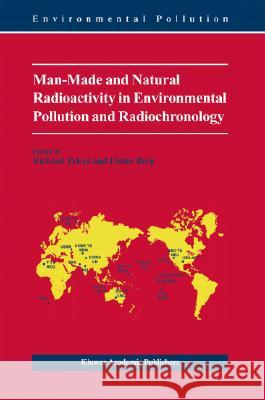Man-Made and Natural Radioactivity in Environmental Pollution and Radiochronology » książka
Man-Made and Natural Radioactivity in Environmental Pollution and Radiochronology
ISBN-13: 9781402018602 / Angielski / Twarda / 2004 / 416 str.
Radioactivity can be detected at different levels in almost all objects all over the world, including the human body. This omnipresence of naturally occurring radioactivity is of immediate and crucial concern to people who work in the nuclear industry, to state and local authorities responsible for environmental protection and control of nuclear weapons, and to researchers as physics (e. g., interaction in scientific and technological disciplines, such of radiation with matter), chemistry (e. g., management of radioactive wastes), biology Ce. g., radiation bioeffects and risks), ecology (e. g., remediation of environmental pollution), electronics (e. g., measurement instruments), etc. Unlike other environmental pollutants, such as heavy metals and pesticides, some other scientific disciplines, for example, archaeology, hydrology and geology, profit by the environmental radionuclides, using methods based on their application in radiochronology. The basic goal of this book is to exarnine the complex state of radioactivity in the environment, including its sources and applications. In principle, there are two sources of environmental radioactivity, namely man made and natural. The authors of this book set out to analyze mainly empirie al aspects of the activities of both groups. On one hand, a detailed analysis of the sources releasing radionuclides into the environment by human activities should, while describing environmental pollution and its dangers, contribute to its decrease in the future."











